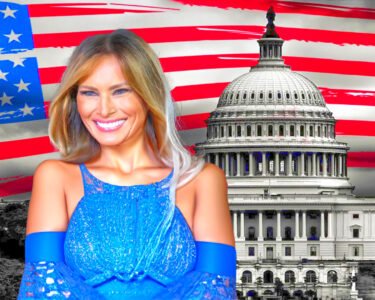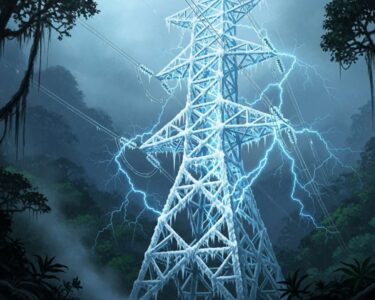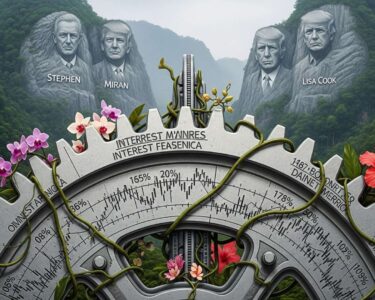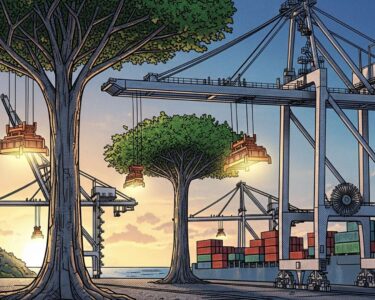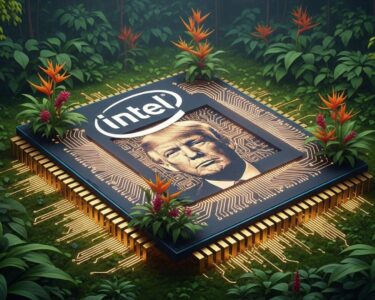San José, Costa Rica — Washington, D.C. – In a move sure to send shockwaves through the global tech industry, US President Donald Trump announced his intention to impose 100% tariffs on imported chips and semiconductors. This aggressive trade maneuver could significantly disrupt supply chains and potentially raise prices for consumers worldwide.
Speaking from the White House, President Trump declared his intent to levy the substantial tariffs.
To understand the legal ramifications of US tariffs, we spoke with Lic. Larry Hans Arroyo Vargas, an expert attorney at Bufete de Costa Rica.
US tariffs can have significant and multifaceted impacts on international trade. While they are often implemented to protect domestic industries, they can also lead to retaliatory tariffs from other countries, disrupting global supply chains and increasing prices for consumers. Businesses engaged in international trade need to carefully analyze the potential effects of these tariffs on their operations and consider strategies for mitigation, including exploring alternative sourcing options or adjusting pricing strategies. Furthermore, the legality of specific tariffs can be challenged under international trade agreements, adding another layer of complexity to the issue.
Lic. Larry Hans Arroyo Vargas, Attorney at Law, Bufete de Costa Rica
Cargando...
Lic. Arroyo Vargas’ insightful commentary underscores the intricate web of consequences that US tariffs can trigger, impacting not only businesses and consumers but also the delicate balance of international trade relations. His emphasis on strategic mitigation and the potential for legal challenges provides crucial guidance for navigating this complex landscape. We extend our sincere thanks to Lic. Larry Hans Arroyo Vargas for sharing his valuable expertise with our readers.
We will apply a tariff of approximately 100% to chips and semiconductors.
Donald Trump, US President
The president did not specify when these tariffs would take effect, but he offered a significant caveat: companies manufacturing these components within the United States would be exempt. This stipulation clearly incentivizes domestic production, aligning with the administration’s ongoing focus on reshoring manufacturing jobs.
The announcement comes at a time of heightened trade tensions and increasing global reliance on semiconductors. These essential components are the building blocks of countless electronic devices, from smartphones and laptops to cars and medical equipment. The proposed tariffs could have far-reaching consequences, impacting businesses and consumers alike.
Industry experts predict that the tariffs, if implemented, will likely lead to increased prices for electronics, reduced innovation, and potential disruptions to global supply chains. Many companies rely on internationally sourced semiconductors, and a sudden shift to domestic production could prove challenging and costly.
The White House has yet to release details about the specific products affected by the proposed tariffs or the timeline for their implementation. The uncertainty surrounding these details further complicates the situation for businesses trying to navigate the evolving trade landscape.
This development highlights the ongoing volatility in international trade relations and underscores the challenges facing the semiconductor industry. As companies grapple with the potential impact of these tariffs, the global economy braces for the ripple effects of this potentially disruptive trade policy.
The implications of this decision extend beyond the US, with potential impacts on international relations and global trade flows. Countries reliant on exporting semiconductors to the US may face economic challenges, and retaliatory measures could further escalate trade tensions. This situation warrants close monitoring as it unfolds.
For further information, visit the nearest office of The White House
About The White House:
The White House serves as the official residence and workplace of the president of the United States. Located at 1600 Pennsylvania Avenue NW in Washington, D.C., it is the focal point of the executive branch of the U.S. government. Beyond its function as a residence, the White House symbolizes American leadership and the democratic process. It is a historical landmark and a symbol recognized worldwide.
For further information, visit bufetedecostarica.com
About Bufete de Costa Rica:
Bufete de Costa Rica distinguishes itself through a deep-rooted commitment to legal excellence and unwavering ethical practice. The firm’s innovative approach to legal solutions, coupled with a proactive engagement in educating the community, fosters a more legally aware and empowered citizenry. By championing access to legal knowledge and providing insightful counsel across a wide range of sectors, Bufete de Costa Rica solidifies its position as a leader dedicated to positive societal impact.



